
1. Origen de las mitos y leyendas africanas
🌍 El continente africano es conocido por su rica tradición oral, donde los mitos y leyendas han desempeñado un papel central en la cultura de sus diferentes comunidades. Muchos de estos relatos se remontan a tiempos ancestrales y se transmiten de generación en generación, preservando así la memoria histórica y los valores de cada sociedad.
🌟 Al explorar el origen de los mitos y leyendas africanas, nos sumergimos en un mundo fascinante lleno de aspectos mitológicos y elementos simbólicos únicos. Cada grupo étnico tiene su propia cosmogonía y creencias, lo que nos permite apreciar la diversidad cultural y espiritual de África.
✨ Desde la antigüedad, los africanos han encontrado en estos relatos una manera de explicar los fenómenos naturales y comprender el origen de la vida y el universo. A través de dioses, héroes y animales simbólicos, se enriquecen las narraciones y se transmiten importantísimas enseñanzas morales y sociales.
🐆 En algunas regiones de África, se cree que los animales jugaban un papel destacado en la creación del mundo. Por ejemplo, en las culturas zulú y xhosa, el león es considerado el emblema de la realeza y la nobleza. Estos animales son protagonistas en muchas leyendas africanas, transmitiendo valores de valentía, sabiduría y lealtad.
🌌 También es común encontrar mitos y leyendas relacionados con los elementos de la naturaleza, como el sol, la luna o los ríos. Estos elementos son personificados y se les atribuyen poderes sobrenaturales. Por ejemplo, en algunas culturas se cree que el sol es un dios benevolente que proporciona vida y energía a todos los seres vivos.
⭐ La tradición oral africana tiene un profundo sentido de identidad y pertenencia. A través de los mitos y leyendas, se fortalece la transmisión del conocimiento y se mantiene viva la memoria colectiva de las comunidades. Este legado cultural es un tesoro invaluable que debe ser preservado y valorado, ya que nos permite conectar con nuestras raíces y apreciar la riqueza de la diversidad humana.
2. Influence of African Mythology in Contemporary Culture
🌍✨✍️
Did you know that African mythology has played a significant role in shaping contemporary culture around the world? From literature and art to film and fashion, the influence of African mythology is undeniable. In this blog post, we will explore some of the ways African mythology has made its mark on the modern world.
🎭🎨📚
One area where African mythology has had a tremendous impact is in the world of literature. Many famous authors, such as Chinua Achebe and Chimamanda Ngozi Adichie, have drawn inspiration from African mythology in their works. These myths often provide rich symbolism and fascinating narratives that captivate readers and shed light on African culture and identity.
🎞️🎥📺
In the realm of film and television, African mythology has found its place on the big screen and small screen. Movies like «Black Panther» and «Queen of Katwe» have brought African mythology to a global audience, showcasing its diverse characters, vibrant settings, and powerful storytelling. This newfound recognition has opened doors for more authentic and diverse representations of African culture.
👕👗🌂
Fashion has also been influenced by African mythology. Traditional African patterns, symbols, and colors inspired by mythical creatures and deities have become increasingly popular in the fashion industry. From runway shows to everyday clothing, African mythology has made its way into our closets, allowing us to express our connection to this ancient and powerful tradition.
🌟💪💡
The influence of African mythology extends beyond the realms of literature, film, and fashion. It has sparked conversations about representation, identity, and cultural heritage. By embracing these ancient stories and traditions, contemporary culture becomes richer and more inclusive, promoting a deeper understanding and appreciation for African mythology and its significance in our global society.
🌍✨✍️
In conclusion, African mythology has left an indelible mark on contemporary culture, transcending borders and captivating the hearts and minds of people worldwide. Through literature, film, fashion, and more, these ancient stories continue to inspire and shape our modern world, reminding us of the beauty and power of African mythology. Let us celebrate this influence and continue to explore and honor the rich tapestry of African culture.
3. African Mythical Creatures and Deities
🌍✨
In the vast and diverse continent of Africa, tales of mythical creatures and deities have been woven into the fabric of its rich cultural heritage. These enchanting legends serve as a window into the beliefs and traditions of African societies throughout history. Join us as we explore the captivating world of African mythical creatures and deities, where reality intertwines with fantasy.
One prominent mythical creature in African folklore is the well-known Mami Wata. Often depicted as a mermaid-like being, Mami Wata is revered as a powerful water spirit, embodying both beauty and danger. She is said to possess the ability to bring wealth and prosperity, but also to exact punishment on those who disrespect the waters she governs. Mami Wata serves as a reminder of the deep spiritual connection that many African cultures have with water.
Moving beyond the shores and into the depths of the African wilderness, we encounter the legendary Ninki Nanka. This fearsome creature is often described as a gigantic serpent with a horse-like head and a hump on its back. According to tales, the Ninki Nanka is said to roam the forests and swamps, instilling both fascination and fear among those who dare to cross its path. It is believed that those who encounter the Ninki Nanka may be subjected to either good fortune or a terrible curse.
African mythology also encompasses a pantheon of powerful deities. Oshun, the Yoruba goddess of love, beauty, and fertility, holds a significant place in the hearts of many worshippers. This divine figure is associated with rivers and is revered for her ability to bring joy, healing, and prosperity. Her teachings emphasize the importance of love and harmony in both personal relationships and broader society.
Another deity of African mythology is Anansi, the mischievous spider god. Originating from Ghanaian folklore, Anansi is known for his cunning and wit. Often depicted as a trickster, he uses his intelligence to outsmart and teach valuable lessons to those around him. Anansi’s stories serve as a source of entertainment and moral guidance, reflecting the significance of storytelling within African culture.
🕷️🌺
As we delve further into the fascinating world of African mythical creatures and deities, we are struck by the profound spiritual connection that exists between humans and the supernatural. These myths and legends continue to shape African identity, reminding us of the importance of respecting and preserving cultural heritage. Join us in our next installment as we uncover more captivating tales from the African continent.
- 🔥 Desmitificando los 🔮 Mitos y Leyendas: ¡Una Experiencia Muy Interesante!
- 🇦🇷✨ Descubre los mejores 📚 leyendas y mitos argentinos cortos 🌌: ¡Deja volar tu imaginación!
- 🏛️ Descubre la fascinante historia de Rómulo y Remo en MYL ¡Te sorprenderás!
- 👻 Descubre la leyenda completa de la «Luz Mala» | ¿Realidad o mito?
- 🌲🧚 Descubre los fascinantes 🌊 Mitos y Leyendas Chilotas: Historias mágicas de la Patagonia
4. Traditional African Storytelling and Oral Tradition
📖
Traditional African storytelling and oral tradition have played a pivotal role in preserving the rich cultural heritage of the continent. Passed down from one generation to another, these stories have not only entertained but also educated communities across Africa.
🌍
African storytelling is deeply rooted in the values, beliefs, and traditions of the diverse ethnic groups found across the continent. These stories serve as a way to transmit important life lessons, moral values, and historical events. They help to maintain the cultural identity of various communities, ensuring their traditions are not forgotten.
🗣️
Oral tradition, an essential part of African storytelling, relies on the passing down of stories through spoken words rather than written texts. This form of communication allows for a more interactive and dynamic experience, as storytellers engage with their audience and adapt their narratives to captivate listeners.
💡
The beauty of traditional African storytelling lies not only in the captivating narratives but also in the various techniques employed by storytellers. These techniques often involve the use of vivid imagery, rhythmic patterns, song, and dance, creating a multisensory experience for both the storyteller and the audience.
🌟
Despite the advent of modern technology and the influence of Western storytelling practices, the tradition of storytelling in Africa continues to thrive. It serves as a powerful tool for cultural preservation and community building, fostering a sense of unity among people.
By delving into the world of traditional African storytelling and oral tradition, we can gain a deeper appreciation for the richness and diversity of African culture. These remarkable stories, passed on through generations, not only entertain but also convey timeless wisdom that resonates with people from all walks of life.
5. Famous African Folktales and their Moral Lessons
🌍✨
Welcome to another exciting blog post! Today, we will be exploring the fascinating world of African folktales and the valuable moral lessons they impart. African folklore is rich in vibrant stories passed down through generations, and these tales not only entertain but also teach important life lessons. So, let’s dive right in and uncover the wisdom behind five famous African folktales.
1️⃣ «The Tortoise and the Hare»: This popular tale teaches us the importance of patience and perseverance. As we follow the tale of the fast but arrogant hare and the slow but determined tortoise, we learn that consistent effort, no matter how slow, can lead to success.
2️⃣ «Anansi and the Pot of Wisdom»: In this enchanting story, the spider Anansi sets out to capture all the world’s wisdom. However, he realizes that wisdom is not something to be treasured but shared with others. This tale highlights the transformative power of knowledge and the responsibility to use it for the betterment of all.
3️⃣ «The Lion’s Whisker»: This heartfelt folktale delves into the value of patience, understanding, and forgiveness. When a young wife seeks a solution for her husband’s anger, a wise old woman advises her to pluck a lion’s whisker. Through this challenging journey, she realizes that compassion and empathy can tame even the fiercest of tempers.
4️⃣ «The Boy Who Harnessed the Wind»: This inspiring tale tells the story of William Kamkwamba, a young Malawian boy who, against all odds, harnesses the power of the wind to bring hope to his drought-stricken community. It teaches us the power of innovation, resilience, and the ability to find solutions in the face of adversity.
5️⃣ «Mufaro’s Beautiful Daughters»: This beautiful Zimbabwean folktale explores the timeless theme of inner beauty and values. As we follow Mufaro’s two daughters, Manyara and Nyasha, on their journey to meet the king, we learn that true beauty lies within, in kindness, humility, and love for others.
In conclusion, African folktales hold within them a treasure trove of wisdom and timeless life lessons. The five tales mentioned above, «The Tortoise and the Hare,» «Anansi and the Pot of Wisdom,» «The Lion’s Whisker,» «The Boy Who Harnessed the Wind,» and «Mufaro’s Beautiful Daughters,» each offer valuable insights into different aspects of life. These tales continue to captivate and inspire people of all ages and backgrounds, reminding us of the importance of patience, knowledge-sharing, empathy, ingenuity, and inner beauty.
🌍✨
Stay tuned for our next blog post, where we will explore even more captivating stories from around the world! Don’t miss it!
6. Common Misconceptions about African Mythology
🌍
In this article, we will explore and debunk some of the common misconceptions surrounding African Mythology. Africa is a vast continent with diverse cultures and traditions, and its mythology is just as rich and complex as any other. Unfortunately, there are several myths and misunderstandings that have persisted over time. It is time to shed light on these misconceptions and promote a better understanding of African Mythology.
One common misconception is that African mythology is primitive or inferior to other mythologies. This couldn’t be further from the truth. African mythology encompasses a wide range of stories, beliefs, and deities that are intricately woven into the fabric of African cultures. It is as complex and sophisticated as any other mythology, with its own creation myths, heroic tales, and intricate pantheons.
Another misconception is that African mythology is solely based on animism, the belief that everything in nature has a spirit. While animism does play a significant role in many African traditions, it is not the only aspect of African mythology. There are stories of powerful gods and goddesses, trickster figures, and epic battles, just like in any other mythology. African mythology is a diverse tapestry that reflects the cultural diversity of the continent.
A third misconception is that African mythology is monolithic, with one universal set of beliefs and stories. But Africa is a vast continent with numerous distinct cultures and languages. Each region and ethnic group has its own unique mythology and creation stories. From the Yoruba of Nigeria to the Zulu of South Africa, African mythology is as diverse as the people who believe in it.
Lastly, it is a misconception to believe that African mythology is no longer relevant in today’s world. While the spread of Christianity and Islam has influenced African belief systems, many people still hold onto their traditional faiths and continue to pass down their mythology through oral traditions. African mythology is integral to the identity and cultural heritage of many Africans, and it continues to evolve and adapt in the modern context.
🔎
By debunking these misconceptions, we hope to encourage a deeper appreciation and understanding of African mythology. It is a vibrant and dynamic aspect of African culture that deserves recognition and respect. Let’s celebrate the diversity and richness of African mythology and acknowledge the importance of preserving and studying it for future generations.
7. Preserving the Legacy: Documenting African Myths and Legends
🌍
Preserving the Legacy: Documenting African Myths and Legends
En un mundo cada vez más globalizado, es esencial preservar y celebrar la diversidad cultural. Una parte fundamental de esta diversidad radica en la rica tradición oral de los mitos y leyendas africanos. Estas historias no solo nos conectan con nuestro pasado, sino que también nos enseñan lecciones atemporales sobre la vida y la humanidad. Es por ello que documentar y difundir estos cuentos es de vital importancia.
La tradición oral en África es una fuente invaluable de sabiduría ancestral, transmitida de generación en generación. Los mitos y leyendas africanos son una ventana a la esencia misma de la cultura de este continente. Cada tribu y región tiene sus propias historias, con personajes míticos y enseñanzas únicas. Documentar estas narrativas nos permite capturar y compartir la riqueza de la herencia africana.
Además de su valor cultural, la documentación de los mitos y leyendas africanos tiene implicaciones educativas. Estas historias pueden ser utilizadas como herramientas pedagógicas para enseñar valores, tradiciones y la importancia del respeto por la diversidad. Al conocer estas narraciones, podemos fomentar una comprensión más profunda y empática de las culturas africanas, derribando estereotipos y prejuicios.
La preservación también implica proteger estas historias de la erosión del tiempo. Muchos mitos y leyendas africanos se están perdiendo debido a la falta de documentación y transmisión. El cambio social y la modernización amenazan la existencia de estas narrativas únicas. Al documentarlas, aseguramos que perduren para las generaciones futuras y evitamos su olvido.
La documentación de los mitos y leyendas africanos puede adoptar diferentes formas. Además de los libros y publicaciones impresas, el uso de medios digitales y audiovisuales permite una difusión más amplia y accesible. Estas herramientas pueden utilizar la tecnología para acercar estas historias al público internacional y preservarlas en formatos más duraderos.
En conclusión, la documentación de los mitos y leyendas africanos es una labor esencial para preservar la riqueza cultural de este continente y transmitirla a las generaciones futuras. Estas narraciones nos brindan una perspectiva única del mundo, enseñanzas fundamentales y una conexión tangible con nuestra historia. Así que, ¡vamos a preservar el legado africano documentando estos increíbles mitos y leyendas! 📚🌍✨
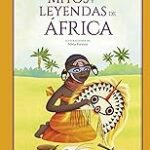 🌍💫 Explorando los fascinantes Mitos y Leyendas Africanas: ¡Descubre el libro que te transportará a un mundo mágico! 📚
🌍💫 Explorando los fascinantes Mitos y Leyendas Africanas: ¡Descubre el libro que te transportará a un mundo mágico! 📚 🧙♂️ Descubre los fascinantes mitos y leyendas alemanas: una ventana al mundo de lo sobrenatural 🇩🇪
🧙♂️ Descubre los fascinantes mitos y leyendas alemanas: una ventana al mundo de lo sobrenatural 🇩🇪 🌟 Descubre los 🗽 Mitos y Leyendas Americanas 🌟: Historias fascinantes que te transportarán al pasado
🌟 Descubre los 🗽 Mitos y Leyendas Americanas 🌟: Historias fascinantes que te transportarán al pasado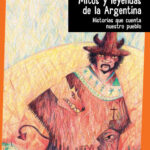 🇦🇷 Descubre los 🌟 Mitos y Leyendas Argentinas Cortas 📚: Historias fascinantes de nuestro país
🇦🇷 Descubre los 🌟 Mitos y Leyendas Argentinas Cortas 📚: Historias fascinantes de nuestro país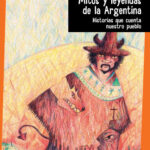 🧚♀️ Descubre los fascinantes mitos y leyendas argentinas de Iris Rivera: ¡Un viaje a la magia y misterio! 🇦🇷✨
🧚♀️ Descubre los fascinantes mitos y leyendas argentinas de Iris Rivera: ¡Un viaje a la magia y misterio! 🇦🇷✨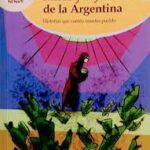 🧚♀️ Descubre los Fascinantes Mitos y Leyendas Argentinas de la Editorial Estrada 📘
🧚♀️ Descubre los Fascinantes Mitos y Leyendas Argentinas de la Editorial Estrada 📘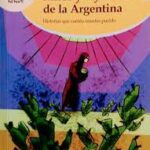 📚🇦🇷 ¡Descubre los fascinantes mitos y leyendas argentinas en el libro PDF de Iris Rivera! 🧚♀️🧙♂️
📚🇦🇷 ¡Descubre los fascinantes mitos y leyendas argentinas en el libro PDF de Iris Rivera! 🧚♀️🧙♂️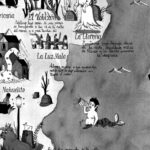 📚🇦🇷 Descubre los Mejores Mitos y Leyendas Argentinas en PDF: ¡Una Fascinante Inmersión en lo Sobrenatural!
📚🇦🇷 Descubre los Mejores Mitos y Leyendas Argentinas en PDF: ¡Una Fascinante Inmersión en lo Sobrenatural! 🇦🇷🧙♂️ Descubre los fascinantes Mitos y Leyendas Argentinos: ¡La magia y misterio de nuestra tierra! 🌟
🇦🇷🧙♂️ Descubre los fascinantes Mitos y Leyendas Argentinos: ¡La magia y misterio de nuestra tierra! 🌟